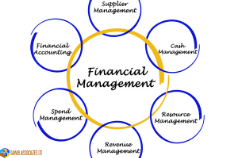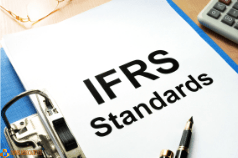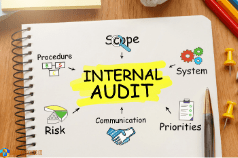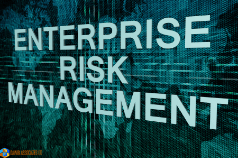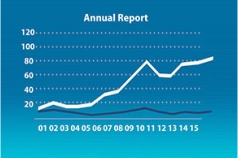
Why You Must Lead With Emotional Intelligence
“Leadership is influenceâ€; infamous words of John Maxwell, the leadership guru.
The ability to motivate and inspire others to take action is a mark of leadership. True leaders are those who by their relationship can influence up, down and across their team, organization or sphere; impacting achievements, success or business results by driving behavior change.
A team or an organization can barely rise above its leadership. This further buttresses the power, influence and sensitivity of leadership in any setting, because leadership is like the wheel that steers the workforce of an organization to any direction; unto success or failure.
The vital tool of influence in leadership can be built or marred depending on the emotional intelligence of a leader. Adequate emotional intelligence is what moves a leader from not just occupying a position and earning loyalty by conferred or constituted an obligation to genuine influence to drive change, result and earn followership by admiration and willing indebtedness of the team or sphere of influence.
Leadership is influence, influence hinges on relationship, and relationship is optimized by emotional intelligence. It’s no longer news that awareness and application of emotional intelligence is vital ingredient for efficient interpersonal relationships, personal, professional and organizational success.
The essence of emotional intelligence or (EI for short) cuts across every strata of human interactions of which its practice or negligence portray obvious consequences. Researches have shown that people with higher emotional quotient (EQ) and average intelligence quotient (IQ) tend to turn out more successful than people with higher intelligence quotient (IQ) and lower emotional quotient (EQ), especially as regards engagements that leverage on social interaction.
This proposition is validated by the words of Theodore Roosevelt who said
“People don’t care how much you know until they know how much you care.â€
And also those of Dale Carnegie;
“When dealing with people, remember that you are not dealing with creatures of logic but with creatures of emotion.â€
People can be impressed with your high IQ, SAT and CGPA scores, but what determines their firm connection with you is your good or high emotional intelligence. Remember, attitude may not be everything, but it’s relevant in almost everything.
According to Monica Thakrar; “IQ often gets you in the door of a job or in an organization, but EQ is what helps you accelerate as a leader.â€
This is not to dispute the place of intellectual intelligence, which on its own is vital, rather this aims to draw our attention to the indispensable hold of emotional intelligence in our connection with humans which invariably is a variable to one’s overall success in life.
Having highlighted the relevance of emotional intelligence, I would want to give its definition and show how it plays into leadership narrative.
Emotional intelligence, by my deduction from Daniel Goleman’s perspective, is your ability to properly identify, label, control and express your emotions and that of others, which informs and influences your thinking and behavior as regards interpersonal relationships, self-motivation, and empathy.
This cuts across 5 vital parameters;
- SELF-AWARENESS: capacity to know your emotions, abilities, flaws, values, passion, and their effect on people in your space.
- SELF-REGULATION: ability to control and regulate your emotions and feelings and openness or adaptability to change.
- SELF-MOTIVATION: ability to power or drive yourself independently to achieve set goals irrespective of circumstance, and awareness of the elements that ignite your passion.
- EMPATHY: Knowing and considering the emotions of people around you, putting yourself in their place when making decisions.
- SOCIAL SKILLS: connecting with people and handling interpersonal relationships with grace.
This so vital to leadership because as leaders, we don’t only lead ourselves, we also lead people. Every form of human interaction requires emotional intelligence; the span of relevance of emotional intelligence is same with extent of human interaction, even as emotional intelligence creates the right environment for leadership and followership to merge and thrive.
A whole lot of your success metric as a leader hinges on your index of emotional intelligence.
According to Forbes, “In addition to reigning in your own feelings, emotional intelligence makes it easier to anticipate and respond to others' sentiments. As much as we may want for it to be objective, business is an emotional experience.
Bad news from work can shock or dismay your employees, while good news may make them unreasonably optimistic. Emotional intelligence means you can tell ahead of time how others will react and develop a strategy to keep them groundedâ€.
Personally my theme for leadership is relationship. I see relationship as the vertebrae in which leadership stands and the channel in which it flows through. Without relationship, leadership can’t thrive because as a leader you deal basically with humans, not robot. But without being intelligent emotionally, a leader cannot efficiently build relationship with and across the team.
According to Select International, A leader’s emotional intelligence can have far-reaching influence over their relationships, how they manage their teams, and generally how they interact with individuals in the workplace.
In this series we will highlight 7 necessities why as a leader you must employ emotional intelligence and the effect it has on your team or organization, so as to hit a home run.
So fasten your seat belt, get a drink and let’s cruise.


